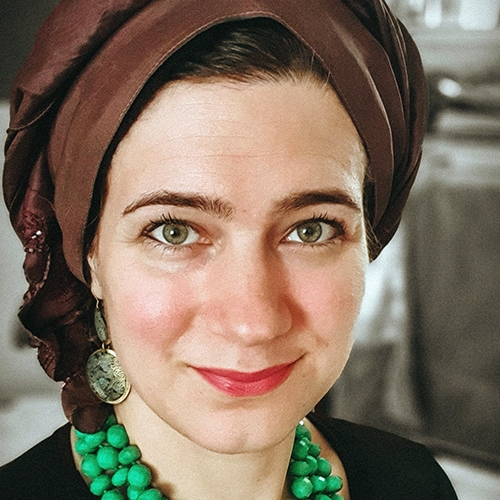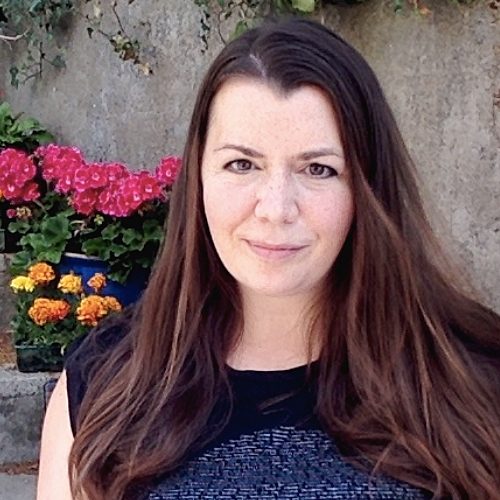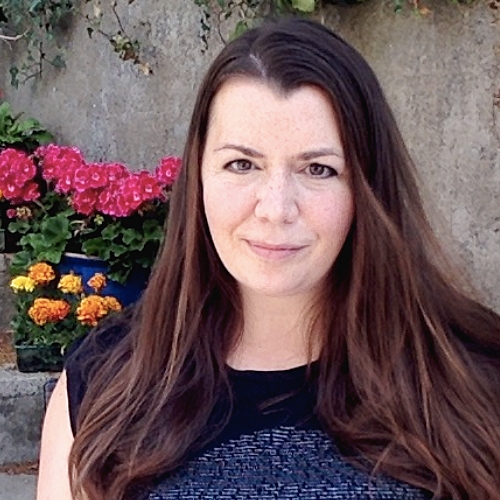 IBCLC Detailed Content Outline: Psychology, Sociology, and Anthropology Focused CERPs - Section V
IBCLC Detailed Content Outline: Psychology, Sociology, and Anthropology Focused CERPs - Section V
Access CERPs on Psychology, Sociology, and Anthropology for the IBCLC Detailed Content Outline recertification requirements. Enjoy convenient on-demand viewing of the latest Psychology, Sociology, and Anthropology focused IBCLC CERPs at your own pace.


Parijat Deshpande is the leading integrative high-risk pregnancy specialist, somatic stress & trauma professional and speaker and author who guides women to improve their pregnancy complications so they can reduce their risk of preterm birth. Her unique neurobiological approach has served hundreds of women to manage pregnancy complications and reclaim a safety and trust in their bodies that they thought was eroded forever. Parijat is the author of bestselling book Pregnancy Brain: A Mind-Body Approach to Stress Management During a High-Risk Pregnancy. She is also the host of the popular podcast Delivering Miracles®️, that discusses the real, raw side of family-building including infertility, loss, high-risk pregnancy, bed rest, prematurity and healing once baby comes home. Parijat professional training is in clinical psychology and she is a Certified Trauma Professional and Certified Clinical Trauma Specialist for individuals.
Birth trauma is a preventable complication of pregnancy and providers play a critical role in this prevention. Preventing birth trauma not only supports a positive birth experience for the birthing person, but sets the foundation for optimal post-pregnancy health. This is because birth trauma is a catalyst for various long-term health issues for the birthing person including attachment difficulties, chronic pain, chronic illness, autoimmune diseases, postpartum mood and anxiety disorders, as well as an increased risk of pregnancy complications in future pregnancies. Through the study of somatic and somatosensory modalities, as well as years of client work in the high-risk pregnancy population, I have seen clients at risk for pregnancy complications and preterm birth defy medical odds and protect themselves from a traumatic birth in their pregnancies after loss or preterm birth. This presentation will cover the three most important roles of a provider in the facilitation of birth trauma prevention.

View Details / Enroll

Breaking the Silos: Understanding the Connections Between Labor Interventions and Lactation

Janiya Mitnaul Williams, MA, IBCLC,CLC, is an accomplished lactation consultant, advocate, and trailblazer in the field of perinatal health equity. With over 15 years of experience, Janiya has dedicated her career to supporting nursing families and driving positive change in lactation practices.
Janiya's educational background includes degrees in Speech-Language Pathology and Audiology, as well as Health & Wellness with a concentration in Human Lactation. This diverse knowledge base equips her with a holistic approach to lactation support, recognizing the unique needs of each individual and their family.
In March of 2020, Janiya made history by creating and establishing the groundbreaking Pathway 2 Human Lactation Program at North Carolina Agricultural and Technical State University (NC), becoming the first public Historically Black College and University (HBCU) to offer a lactation program. As the Director of this pioneering program, she has set new standards in lactation education and operates an Outpatient Community-Based Lactation Clinic, providing essential support to nursing families in the local community.
Janiya's visionary leadership extends beyond the university setting. As the Co-Chair of the Perinatal Health Equity Collective for North Carolina since 2022, she leads strategic initiatives to address disparities and promote equitable access to quality perinatal services. Her passion for social justice and commitment to advancing equity in perinatal care have made a profound impact on the field.
Additionally, Janiya serves as the Co-Coordinator for Doula Services at the Women's and Children's Center at Cone Health. In this role, she works tirelessly to ensure birthing individuals and their families receive compassionate care and invaluable resources throughout their journey.
Recognizing the need for representation and cultural inclusivity within the lactation field, Janiya founded the Mahogany Milk Support Group in 2015. This empowering initiative aims to promote, encourage, and normalize nursing for Black and Brown families. Her trailblazing efforts include being the first person of color and Non-Registered Nurse to be hired as a Lactation Consultant within Cone Health's hospital system.
Driven by a passion for diversity, equity, and inclusion in lactation, Janiya strives to promote better health outcomes for Black, Brown, marginalized, and underprivileged families, who often face significant lactation barriers. Her visionary leadership, dedication to lactation equity, and unwavering commitment to empowering nursing families have earned her recognition and respect within the industry. Through her pioneering work and advocacy, Janiya is making a lasting impact on the field of perinatal health equity, creating a more inclusive and supportive environment for all nursing families.
Topic: Breaking the Silos: Understanding the Connections Between Labor Interventions and Lactation - [View Abstract]
Birth and breastfeeding/chestfeeding are intimately woven together although many separate the two. One's labor and birth process however, have a direct impact on how their nursing journey begins. Naturally, most infants can independently progress through the fetal to neonatal transition and produce a baby-led latch within the first hours of life. However, the process of birth is often unpredictable and many birthing families are regularly faced with common or unexpected labor interventions that can adversely affect milk supply and the initiation and receptivity of breastfeeding/chestfeeding for the infant. Some of the most common interventions include: IV fluids, induction of labor, epidurals, and continuous electronic fetal monitoring. These maternity care practices come with unintended consequences that directly impact lactation. Furthermore, studies indicate that many of these interventions are done more for convenience as opposed to medical reasoning. In order to promote, protect and support breastfeeding/chestfeeding for birthing families, providers and other members of the healthcare team should be encouraged to work in tandem; using effective communication and facilitating open dialogue. By including families in every aspect of their birth and postpartum period, self-efficacy and confidence is increased and trust is developed, setting the foundation for increased initiation and duration of human milk feeding.

View Details / Enroll

Breastfeeding / Nursing Aversion and Agitation (BAA) in breastfeeding mothers

Zainab Yate is a Biomedical Ethicist, with a specialist interest in infant feeding. Zainab is Vice Chair and named qualitative lead on a paediatric flagged Research Ethics Committee Panel for the Health Research Authority (HRA) in the UK, reviewing research protocols for over a decade. Zainab's previous working background is in Public Health and Commissioning the National Health Service (NHS) in the UK. She had also been a volunteer breastfeeding peer supporter with the NHS for a number of years, is the owner-author of the resource site for mothers and healthcare practitioners on Breastfeeding / Nursing Aversion and Agitation and author of "When Breastfeeding Sucks".
Topic: Breastfeeding / Nursing Aversion and Agitation (BAA) in breastfeeding mothers - [View Abstract]
Topic: Navigating the Future: Bioethical Challenges in Anticipated Integration of AI in Lactation and Breastfeeding Services - [View Abstract]
Topic: Research Ethics & Infant Feeding: How to Utilise the Four 'D's of a Brief Assessment - [View Abstract]
Aversion to breastfeeding or agitation while breastfeeding is known to occur in some women who breastfeed while pregnant, or who tandem feed a newborn and a toddler. However, it is a little researched area, and the paucity of published literature around breastfeeding aversion and agitation reveals a significant gap in the literature. My presentation presents the findings of an exploratory online survey that sheds light on what appears to be a commonly experienced phenomenon of aversion and agitation whilst breastfeeding, which varies in form, severity and duration. BAA is characterised by feelings of anger or rage, a skin crawling sensation and an urge to remove the suckling infant, but can also be feelings of agitation and irritability whilst the infant is latched. Mothers who experience BAA still continue to breastfeed, but have feelings of guilt and shame about BAA and are often confused about having feelings of BAA. Research is needed to understand the reasons for BAA, its causes, triggers and strategies to minimize the experience in breastfeeding mothers.

View Details / Enroll

View Details / Enroll


Dr. Joana Torres received her medical degree from the University of Coimbra, Portugal, and completed her fellowship in Gastroenterology at the Hospital Center of Coimbra, Portugal. She spent 3 years at Icahn School of Medicine at Mount Sinai, NY, USA working on research projects in the field of IBD. She is currently working in Hospital Beatriz Ângelo, Loures, Portugal as a Gastroenterology Assistant and she is Adjunct Assistant Professor at Mount Sinai, NY. She is the President of the Scientific Committee of the Portuguese IBD Group and an active member of the European Crohn and Colitis Guideline committee (GuiCom). Her research focuses on populations at risk for developing inflammatory bowel disease with the goal of better understanding events taking place before the disease is diagnosed.
Inflammatory Bowel Disease is a chronic immune-mediated disease with increasing epidemiology. IBD results from a complex relationship between genetic susceptibility, environmental factors and intestinal microbiota, resulting in a self-perpetuating abnormal mucosal immune response. Increasing epidemiological evidence suggests that early life events and childhood exposures may be important for determining the risk of IBD. One of the most important early life exposures is diet: breastfeeding (BF) or formula feeding may impact microbiome development, which in turn may modulate immune system maturation. In this presentation I will review the benefits of BF, the evidence suggesting the role of BF in IBD, the impact of BF on the developing microbiome, and debate the issues of breastfeeding in patients with IBD.

View Details / Enroll

Breastfeeding and Neonatal Abstinence Syndrome

Amber Valentine is a Speech-Language Pathologist who graduated from the University of Kentucky with her MS in Communication Disorders. She is a Board Certified Specialist in Swallowing and Swallowing Disorders and an International Board Certified Lactation Consultant, as well as a Certified Neonatal Therapist (CNT). She worked for Baptist Health Systems, Inc for 8 years before moving to Florida where she worked for Wolfsons Children’s Hospital and Mayo Florida. She is now back in Kentucky working for Baptist Health Lexington. She has experience in adults and pediatrics with feeding and swallowing difficulties including: bedside swallow evaluations, Modified Barium Swallow studies, FEES, and pediatric feeding evaluations including NICU. She has experience with head and neck cancer patient including evaluation and treatment of swallowing difficulties, PMV use, and voice after total laryngectomy including TEP. She has provided guest lectures for the University of Kentucky, Eastern Kentucky University, and the University of Louisville on feeding and swallowing topics. She has presented at the hospital, local, state, national, and international levels on pediatric feeding/swallowing and breastfeeding.
Topic: Breastfeeding Medically Complex Infants in the Neonatal ICU - [View Abstract]
Topic: Building a Successful Breastfeeding Program in the NICU: Challenges and Practical Solutions - [View Abstract]
This presentation is designed to discuss the role of feeding therapy, breastfeeding, and family dynamics with infants with neonatal abstinence syndrome. These baby/family dynamics can be complex situations and feeding difficulties are extremely common. Breastfeeding education/information can be implemented prior to birth along with other education for families to promote more infant/family bonding and reduce stress of being born in substance exposure. Breastfeeding dramatically reduces stress signs in infants exposed to substances neonatally. Working together as an interdisciplinary team, we can set these families up for more successful feeding opportunities and decreased stress in developmental care.

View Details / Enroll

Breastfeeding and Perinatal Mood Disorders: Circuits and Circumstances

Dr. Maria Enrica Bettinelli is Lecturer of Pediatrics, University of Milan, Italy School of Medicine. As IBCLC since 2003, her research focuses on how overcoming barriers to implement breastfeeding support in the community and to promote mother and babies well-being in the perinatal period and the first years of life, adopting nurturing care approach. She has authored peer-reviewed publications on baby friendly community, breastfeeding rates in Lombardy, and the maternal and child health effects of lactation.
Her current research includes the clinical management of breastfeeding difficulties and how emotional experiences impact on breastfeeding decision. As Director of Milan Breastfeeding Network in Milan, Dr. Bettinelli leads an interdisciplinary team of clinicians, nurses and midwives that is developing new approaches to management of breastfeeding difficulties and to sharing breastfeeding education. Dr. Bettinelli is a member of the Italian Society of Pediatrics and Italian Society of Neonatology, chairs the Task Group of Education and Conference 2020 of ELACTA Board 2018-2020 and is a member of the ELACTA Board 2018-2020, and since 2012 is a member of the Academy of Breastfeeding Medicine.
Dr. Bettinelli attended University of Milan School of Medicine where she graduated with her M.D. in 1986. She completed her Residency in Pediatrics in 1989 and in Neonatology in 1991 at University of Milan and went on to complete her medical experience at Mangiagalli Hospital in Milan. Dr. Bettinelli obtained her MSc in Perinatal Mental Health in 2019.
She lives in Milan, Italy with her husband and her daughter.
Breastfeeding, attachment, and perinatal mental disorders share the same neurobiological circuits and neurosciences have shown there are connections acting both in a protective and negative sense. Relational experiences in the early years of life put the basis for future physical and mental health. Avoiding early toxic stress is essential in preventing mental problems later. Maternal depression, and in general perinatal mental disorders of parental figures, especially of the mother, have a well-documented negative effect on infants and children, altering the mechanism of responsive interaction. Depressed mothers do not engage with their children and fail to respond to their signals. Children find this situation stressful, and there may be permanent effects arising from being raised by chronically depressed parents.
According to recent studies, breastfeeding helps reduce early toxic stress, as well as allowing optimal nutrition. The responsive interaction mode is the basis of the relationship established with breastfeeding. So breastfeeding has a significant impact on the mental health of children and adolescents. The way mothers respond to their children's needs is the key to understanding these long-term effects. When mothers respond consistently to the signals of their children, they lay the foundations for the resilience of their children. By understanding that the success of breastfeeding is linked to perinatal maternal mental health, we can create awareness when counseling the breastfeeding mother.

Breastfeeding and Survivors of Adverse Childhood Events

Kathleen Kendall-Tackett is a health psychologist and International Board Certified Lactation Consultant, and the Owner and Editor-in-Chief of Praeclarus Press, a small press specializing in women's health. Dr. Kendall-Tackett is Editor-in-Chief of two peer-reviewed journals: Clinical Lactation and Psychological Trauma. She is Fellow of the American Psychological Association in Health and Trauma Psychology and Past President of the APA Division of Trauma Psychology. Dr. Kendall-Tackett specializes in women's-health research including breastfeeding, depression, trauma, and health psychology, and has won many awards for her work including the 2017 President’s Award for Outstanding Service to the Field of Trauma Psychology from the American Psychological Association’s Division of Trauma Psychology. Dr. Kendall-Tackett has authored more than 460 articles or chapters and is author or editor of 38 books.
Topic: Breastfeeding Helps Mothers Overcome the Legacy of Abuse and Adversity: It Makes All the Difference - [View Abstract]
Topic: Burnout, Compassion Fatigue and Self-Care for Members of the Perinatal Team - [View Abstract]
Topic: Burnout, Secondary Trauma, and Moral Injury in Perinatal Care Providers - [View Abstract]
Topic: Does Breastfeeding Protect Maternal Mental Health? The Role of Oxytocin and Stress - [View Abstract]
Topic: Interplay of Oxytocin and Stress Systems: Impact on Breastfeeding and Mental Health - [View Abstract]
Topic: Lessons to Learn from Fed Is Best: How Can We Improve Our Care? - [View Abstract]
Topic: Mother-Infant Sleep Location: It's Not as Simple as it Seems - [View Abstract]
Topic: Trauma and Breastfeeding: Working Effectively with Trauma Survivors - [View Abstract]
Topic: What’s New in Postpartum Depression? A Summary of Current Findings - [View Abstract]
Can events from childhood influence a woman’s current mothering experience and her health and well-being? Yes, they can, but they don’t have to be the blueprint for the rest of her life. This session provides an overview of the latest research on the effects of Adverse Childhood Experiences; their impact on breastfeeding; how they can affect a woman’s body, mind and spirit; and what she can do to cope.

Breastfeeding as a Public Health Issue: Do we Have the Right Approach?

Professor Amy Brown is based in the Department of Public Health, Policy and Social Sciences at Swansea University in the UK. With a background in psychology, she has spent the last thirteen years exploring psychological, cultural and societal influences upon infant feeding decisions in the first year. Her research seeks to understand how we can shift our perception of how babies are fed away from an individual mothering issue to a wider public health problem – with societal level solutions. Dr Brown has published over 60 papers exploring the barriers women face in feeding their baby during the first year. She is a mother to three human children and three book babies: Breastfeeding Uncovered: Who really decides how we feed our babies, Why starting solids matters, and The Positive Breastfeeding Book: Everything you need to feed your baby with confidence. She is a regular blogger, aiming to change the way we think about breastfeeding, mothering and caring for our babies.
Topic: Breastfeeding Trauma: How Can We Recognise and Support Mothers Who Wanted to Breastfeed but Were Unable to Meet Their Goals? - [View Abstract]
Topic: How Can We Better Support Mothers Don’t Meet Their Breastfeeding Goals? - [View Abstract]
Topic: What Do Normal Infant Feeding Patterns Really Look Like? - [View Abstract]
The majority of women should be able to breastfeed, but elements of their experience are ultimately stopping them from doing so. Breastfeeding works best when done responsively but many psychological, social and cultural factors work directly or more subtly against responsive feeding, meaning that many mothers experience difficulties with breastfeeding which can lead to premature weaning. These factors can include separation of mother and baby, a lack of understanding of breast milk production, public attitudes and wider pressures of motherhood to name a few. If we want to support mothers to breastfeed we must understand and target these wider factors to create a supportive breastfeeding environment. It is important however that our approaches to breastfeeding promotion and education are perceived positively by mothers in order for them to be effective. In this presentation I’ll be addressing the common barriers to breastfeeding and their impact, along with new research that looks at how mothers perceive common breastfeeding education messaging and what this research tells us about how we can change our approach to ensure our messages have the intended impact.

View Details / Enroll

View Details / Enroll

Breastfeeding in Hong Kong and traditional Chinese wisdom on confinement practices

Heidi Lam is a private practice IBCLC and La Leche League Leader in Hong Kong. She tandem nurse her two daughters and have more then 8 years of breastfeeding experience. She was accredited as La Leche League Leader in 2009. In 2010, to she was awarded the Trudi Szallasi Memorial Scholarship from Health-e-learning.com to complete a one year course on lactation medicine. In 2011, she was qualified as International Board Certified Lactation Consultant. Her job focus mainly on home visits to clients and running breastfeeding classes. Heidi is also active in promoting breastfeeding and was often interviewed by parenting magazines and other media in Hong Kong. Heidi was a Hong Kong delegate to spoke at the Susuibu.com International Lactation Conference 2010 in Malaysia. She also speaks regularly at local breastfeeding support groups.
Breastfeeding rates upon discharge is rising in Hong Kong over the past 20 years. Breastfeeding has become more of a topic than ever before. However, it is still very common to have early introduction of formula and exclusive breastfeeding rate is still low. Most private hospitals do not allow 24 hours room in. Many mothers need to go back to work when the baby is only six weeks old. In Hong Kong, it is very common to practice a confinement period after birth. This traditional Chinese wisdom has many benefits for the mothers and babies. Mothers of other cultures can also make use of some of the practices to benefit themselves.

View Details / Enroll

View Details / Enroll


Felisha Floyd, BS, CLC, IBCLC, is currently Lactation Coordinator for Hospital Corporations of America system in Florida. She also offers infant feeding support, mentorship, and education to her local community via her private practice, Beyond Breastfeeding. Felisha is the founder of Our Brown Baby, a community based breastfeeding support group, which serves to provide specialized culturally sensitive breastfeeding support to families of color. In addition to these roles, Felisha is one of the founding mothers and current President of the non-profit The National Association of Professional and Peer Lactation Supporters of Color, affectionately known as "NAPPLSC". She is also a Center for Social Inclusion First Food Equity Cohort member. Previously, she worked as a Women, Infants, and Children (WIC) Breastfeeding Peer Counselor and Breastfeeding Coordinator.
Fueled by her professional and personal passions to ensure that all mothers have access to quality breastfeeding support and resources, Felisha has fervently pledged to reduce breastfeeding disparities in the African American community. To this end, she continually makes efforts to help increase breastfeeding rates in the African American community by unapologetically fighting that which contributes to racial health disparities. Fearlessly obsessive, she is affectionately known as the social media guru "Blactavist!" (Black Lactation Activist). This online community consists of approximately 38,000 supporters on Twitter, Facebook and Instagram, and is dedicated to empowering African American families to breastfeed.
Dianne Cassidy, MS, IBCLC, ALC, CCE, is a Lactation Consultant in Rochester, New York with Advanced Lactation Certification. Dianne works in Private Practice, and in a busy Pediatrician office supporting mothers and babies. She also teaches prenatal breastfeeding and childbirth in the hospital setting. In the fall of 2013, Dianne completed her MA in Health and Wellness/Lactation. She is dedicated to serving mothers and babies, and has the unique ability to identify with the needs and concerns of new mothers. Dianne has worked extensively with women who have survived trauma, babies struggling with tongue tie, birth trauma, milk supply issues, attachment, identifying latch problems, returning to work and breastfeeding multiples.
Dianne has 3 biological children, including twins, 3 step children and a wonderful husband. Dianne is an author and public speaker and enjoys teaching caregivers how to support new families through breastfeeding struggles.
Carmela Kika Baeza, MD, IBCLC, is a family medicine MD, bachelor´s degree in Public Health Education, and IBCLC since 2005. She is also a BFHI Evaluator and the current president of the Spanish Lactation Consultant Association (AECCLM). She works in a private Family Wellness Clinic, Raices, as person in charge of the lactation program, which includes two IBCLCs attending breastfeeding families and an extensive offer of breastfeeding training for health care professionals and breastfeeding peer counsellors. The team has trained over three thousand doctors, midwives and nurses from both the Spanish National Health Service and the private sector in Spain. She is a frequent lecturer at national conferences, and has also lectured internationally, both on-site and online. She is the author of several scientific papers on breast pain, mastitis and tongue tie. She is also the author of a breastfeeding/parenting book, “Amar con los Brazos Abiertos” (To Love with Open Arms). She is married to Carlos and they homeschool their four children.
Paulina Erices, BS, IBCLC, RLC, is the mother of three children, a bilingual Lactation Consultant (IBCLC) in private practice and Maternal Child Health Specialist for the Jefferson County Health Department in Colorado. She is originally from Chile and has lived in the US for almost 15 years. She holds a Bachelor of Science in Psychology from PennState and is currently completing her Masters of Science in Leadership and Organizations from the University of Denver. She has been a La Leche League Leader for 12 years where she has held different mother and Leader support roles across the US. She is a member of several groups working to improve child health and well-being, including the Early Childhood Colorado Partnership, the NICU Consortium, and the Community Leaders in Health Equity. Paulina's goal is to elevate and empower the voices of the community to effectively improve systems of care through advocacy and policy. Paulina lives in Littleton, Colorado where she spends her free time birding with her family and training her dog Aussie.
Fiona Lang-Sharpe, IBCLC, NAMCM, is a Birth Doula and International Board Certified Lactation Consultant in private practice in Edmonton, AB, Canada. Fiona has over 20 years of experience attending births, supporting mothers post partum, and offering lactation case management services. Having studied in England under the National Association of Maternal and Child Welfare, Fiona moved to Canada in 1989 and after having her first born son was accredited through La Leche League Canada as a Leader and went onto obtain her certification as an IBCLC. Fiona's experience in perinatal health along with her interest in technology and social media and passion for quality education makes her an excellent fit for GOLD Conferences International. Fiona is one of the first voices you'll hear as one of GOLD's online Master of Ceremonies, and is also often one of the first faces you'll see, online and in person, as she represents GOLD at industry events and via social media. Fiona is highly anticipating an expanding role with GOLD, as GOLD increases it online offerings.
The term “breastfeeding self-efficacy” gets thrown around a lot, but what does it really mean? How do we define it, why is it important and what can we be doing as lactation support providers to empower parents and have a positive impact on breastfeeding self-efficacy? Is there anything that we’re doing in our approach to breastfeeding support that is unintentionally having a negative impact? Does breastfeeding self-efficacy look the same for everyone, and how do we target marginalized communities? These are some of the questions that our experts will be tackling during the discussion with a goal of leaving listeners with concrete changes that they can immediately make to their own practice.

View Details / Enroll
















